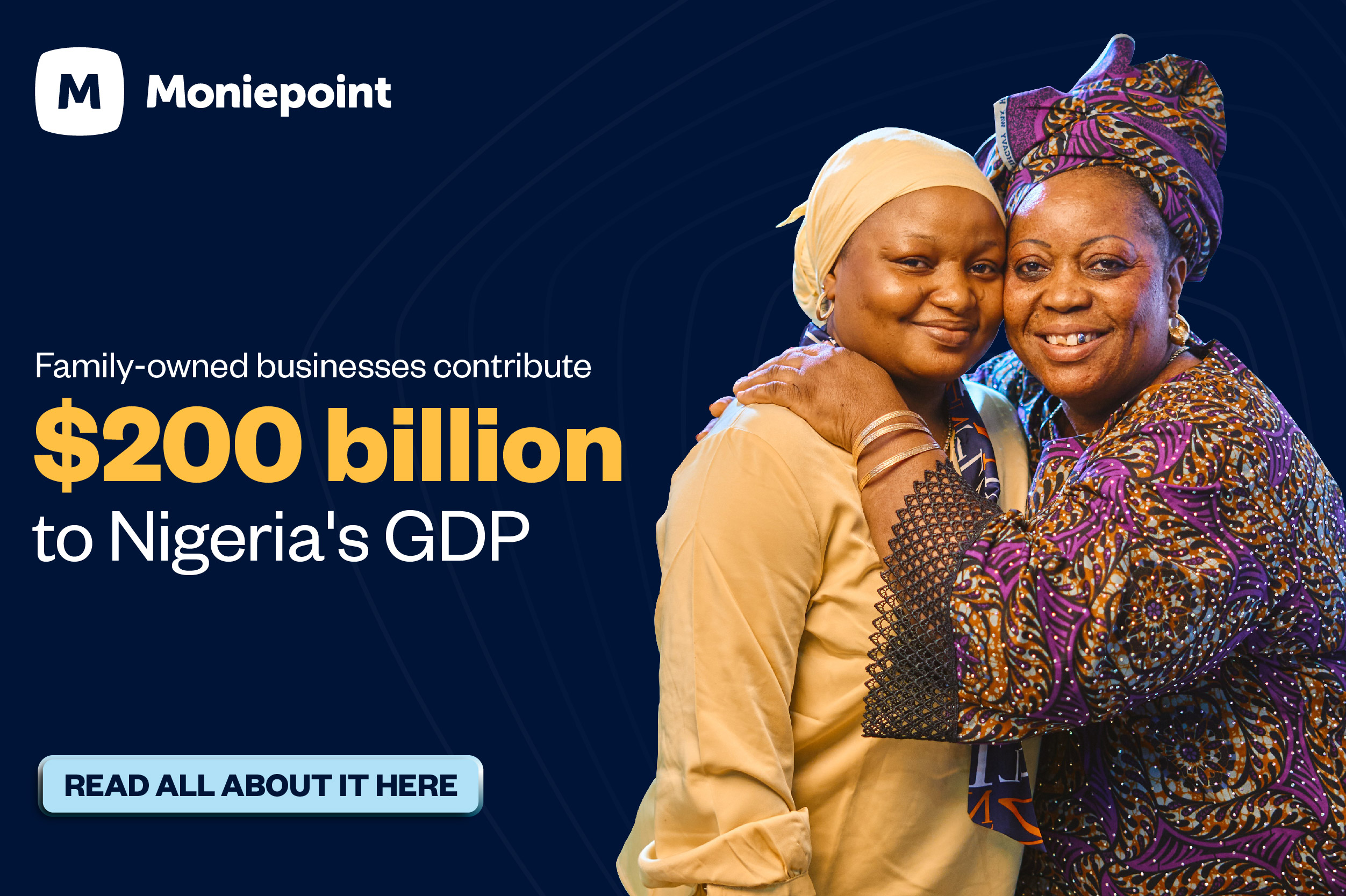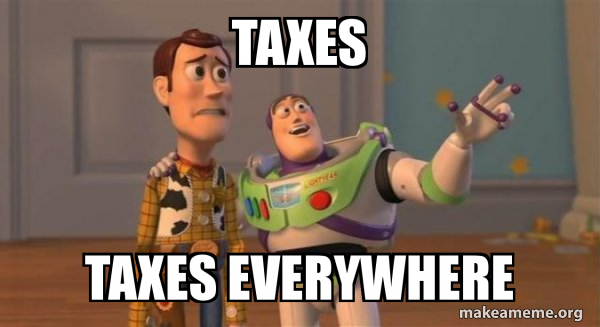

Good morning ☀️
What do you look out for in a good podcast? Ease of access, hot topics, or the host’s soothing voice?
We’re working on a podcast and we need your input so we create something worthwhile. Please take a minute to share your podcast preferences with us here.
Nigeria wants to waive taxes for SMEs
Critics have tagged the President-Tinubu-led administration as tax masters. Since it took office, the Tinubu-led government has introduced a slew of levies, with its latest being a 0.5% cybersecurity levy for all transactions.
It appears the government might be having a rethink about its tax reforms.
A proposed tax waiver: In its newly proposed tax reform, businesses that earn less than ₦25 million ($17,000) a year will be exempt from paying taxes. These businesses make up the bulk of Nigeria’s informal economy, contributing 57.7% of Nigeria’s 2022 GDP. Businesses in the informal economy also contribute largely to employment across the country where unemployment rates is on a steady increase.
The government claims it is lending a helping hand to these businesses to cushion the effect of inflation which stands at 33%. These businesses will be exempt from paying withholding tax, company income tax, and payroll taxes.
Why it matters: Nigeria has the largest informal economy in sub-Saharan Africa. While taxes are the government’s way of making money, the informal sector, which contributes a large portion of the Nigerian economy, suffers from 33% inflation, which has made it more difficult for businesses to make a living. High inflation eats into their customers’ purchasing power, making it harder to sell products and services
By exempting these struggling businesses from taxes, the government is hoping to give them some breathing room. This could allow them to stay afloat, keep people employed, and maybe even contribute more to the economy in the long run. It’s a gamble, but one that could pay off for both businesses and the country.
The proposed tax reforms may not be implemented until 2026. Currently, the reforms are undergoing private-sector consultations, after which they will be submitted for review to the National Assembly.
Read Moniepoint’s case study on family-owned businesses

Family-owned businesses are everywhere, shaping our world in ways you might not expect. We’ve found some insights into how they work, and we’d love to share them with you. Dive in right away here.
Kenya proposes a significant tax on digital marketplaces
One year ago, almost exactly to this date, we wrote a TC Daily edition titled “Kenya’s content creator tax”. That edition broke down Kenya’s proposed 15% withholding tax for content creators.
The Finance Act of 2023 which initially proposed the 15% withholding tax faced criticism, and the Act was amended, before being passed. The final version charges online content creators a much lower withholding tax rate of 1.5%.
Now, Kenya wants that tax to extend to all online platforms created by non-residents. According to the Kenyan Wall Street, amendments have been proposed to the 2023 Act, and these amendments include new provisions that would increase taxes on online platforms and marketplaces operating in Kenya.
The proposed amendments will make S.3 of Kenya’s Income Tax Act specifically list which digital marketplaces will be subject to Kenyan tax laws. Listed marketplaces include ride-hailing services, food-delivery services, rental, professional, freelance and task-based services. The proposed “Significant Economic Presence Tax” won’t just apply to established ride-hailing companies, it will also target startups whose founders aren’t Kenyan residents. This tax can be as high as 20% of their annual gross turnover.
The tax is a significant—no pun intended—increase from the 1.5% digital services tax that’s presently in place for these digital platforms.
Kenyans are on a rocky road: Imported cars could also see a 2.5% annual tax on their values if the amendment passes.
What’s critical about the bill, though, is that it provides Kenya’s tax watchdog, the Kenya Revenue Agency (KRA) with powers to fine businesses who don’t integrate the tax monitoring system eTIMS into their services. The proposed act doubles the payable fines from the KES1 million initially announced by the KRA when eTIMS launched last year.
The KRA’s insistence on eTIMS isn’t too farfetched seeing as the agency generated KES 2.166 trillion ($32.2 billion) using the service in 2023.
Collect payments anytime anywhere with Fincra

Are you dealing with the complexities of collecting payments from your customers? Fincra’s payment gateway makes it easy to accept payments via cards, bank transfers, virtual accounts and mobile money. What’s more? You get to save money on fees when you use Fincra. Get started now.
Tanzania’s apex bank goes after unlicensed loan apps
2022 was the year a few apex banks across Africa set their sights on unlicensed digital lenders. In Kenya, the Central Bank of Kenya (CBK) released new regulations that cut the number of digital lenders in the country from 480 lenders to just 51 by 2024. Nigeria’s consumer protection watchdog, around the same time, also released similar guidelines that required the country’s teeming digital lenders to be licensed or face heavy fines. So far, Nigeria has 225 fully-approved lenders, 41 with conditional approvals, and 88 more on a watchlist.
Now, Tanzania is joining the fray. The East African country’s central bank is banning unlicensed digital lenders, targeting over 100 shady apps offering quick cash.
Why the crackdown? These countries have concerns about predatory practices like sky-high interest rates and public shaming of borrowers who fall behind. These lenders, using the borrowers’ contact lists, typically send messages like: “This person is owing us money, and you’re one of his guarantors. Tell him to pay or else we’ll embarrass both of you”. In extreme cases, the messages are more explicit and contain the threat of violence.
Who’s affected in Tanzania? Up to 30% of Tanzanians rely on these apps for quick loans, often without traditional banking access; and the new guideline will slow access to quick loans as digital lenders scamper to meet up. The reforms mandate licensed lenders to provide signed loan agreements. These agreements must clearly outline all terms and conditions, including the total cost of the loan (including fees), interest rates, and any penalties for late payments (rollover fees). Citizens are also urged to read well before signing such agreements.
It’s been a long time coming: Tanzania has been very wary of money lenders, and has issued several warnings in the past. This crackdown signals a definitive shift towards protecting borrowers and fostering a responsible digital lending landscape.
Have you shopped online recently?

In just 3 mins, kindly share your experience with delivery services in Nigeria, and you could be one of 20 people to win an electricity gift card or N10,000 airtime. Share here 👉🏾 paystack.com/logisticsurvey
Paga shifts gears to consumer app
When Tayo Oviosu founded Paga in early 2009, he believed mobile phones could bring financial services to all Africans. It meant creating a mobile app, but it was still early days in Nigeria’s financial services industry, and KYC and identification frameworks were almost nonexistent. It forced a change of plans.
Instead of an app, Paga pioneered PoS systems that are now extremely popular, with the company becoming a major player in the Nigerian financial services space.
Fifteen years and billions of naira processed transactions later, Paga is refocusing on a mobile app it first launched in 2020. The Paga app, which the company says has 4.5 million users, allows users to create mobile accounts, pay bills, buy airtime, and send money.
Attend GITEX Africa 2024

GITEX Africa returns a second time on May 29–31, 2024, to Marrakech, Morocco, discussing ways to accelerate the continent’s digital health revolution. GITEX is the continent’s largest all-inclusive tech event renowned for uniting the brightest minds in the technology industry. Grab your tickets here.
The World Wide Web3
Source:

|
Coin Name |
Current Value |
Day |
Month |
|---|---|---|---|
| $62,948 |
+ 2.75% |
– 2.54% |
|
| $2,943 |
+ 1.99% |
– 3.66% |
|
|
$10.02 |
– 3.10% |
+ 2.81% |
|
| $146.55 |
– 5.42% |
– 18.78% |
* Data as of 06:35 AM WAT, May 14, 2024.
- TechCabal is set to announce its first set of speakers for the second edition of its Moonshot Conference which is set for October 9–11, 2024, at the Eko Convention Centre, Lagos, Nigeria. Moonshot will assemble Africa’s biggest thinkers, players and problem solvers on a global launchpad for change. If you want to join the stakeholders in Africa’s tech ecosystem for three days of insightful conversations, then get an early-bird ticket at 20% off.
Here’s what we’ve got our eyes on
- GTCO targets $750 million capital raise on NGX and London Stock Exchange
- The next wave: Japan is invested in exporting its resources to Africa
- OpenAI releases GPT-4o, a faster model that’s free for all ChatGPT users
- Nigeria returns to ‘orthodox policy’, says new central bank governor
- With 500,000 freelancers and remote workers using its platform, Raenest is profitable and ready to take over Africa
Written by: Faith Omoniyi & Towobola Bamgbose
Edited by: Timi Odueso
Want more of TechCabal? Sign up for our insightful newsletters on the business and economy of tech in Africa.
- The Next Wave: futuristic analysis of the business of tech in Africa.
- Entering Tech: tech career insights and opportunities in your inbox every Wednesday at 3 PM WAT.
- In a Giffy: business decisions powered by data-driven insights and analysis you can trust.
- TC Scoops: breaking news from TechCabal
P:S If you’re often missing TC Daily in your inbox, check your Promotions folder and move any edition of TC Daily from “Promotions” to your “Main” or “Primary” folder and TC Daily will always come to you.























